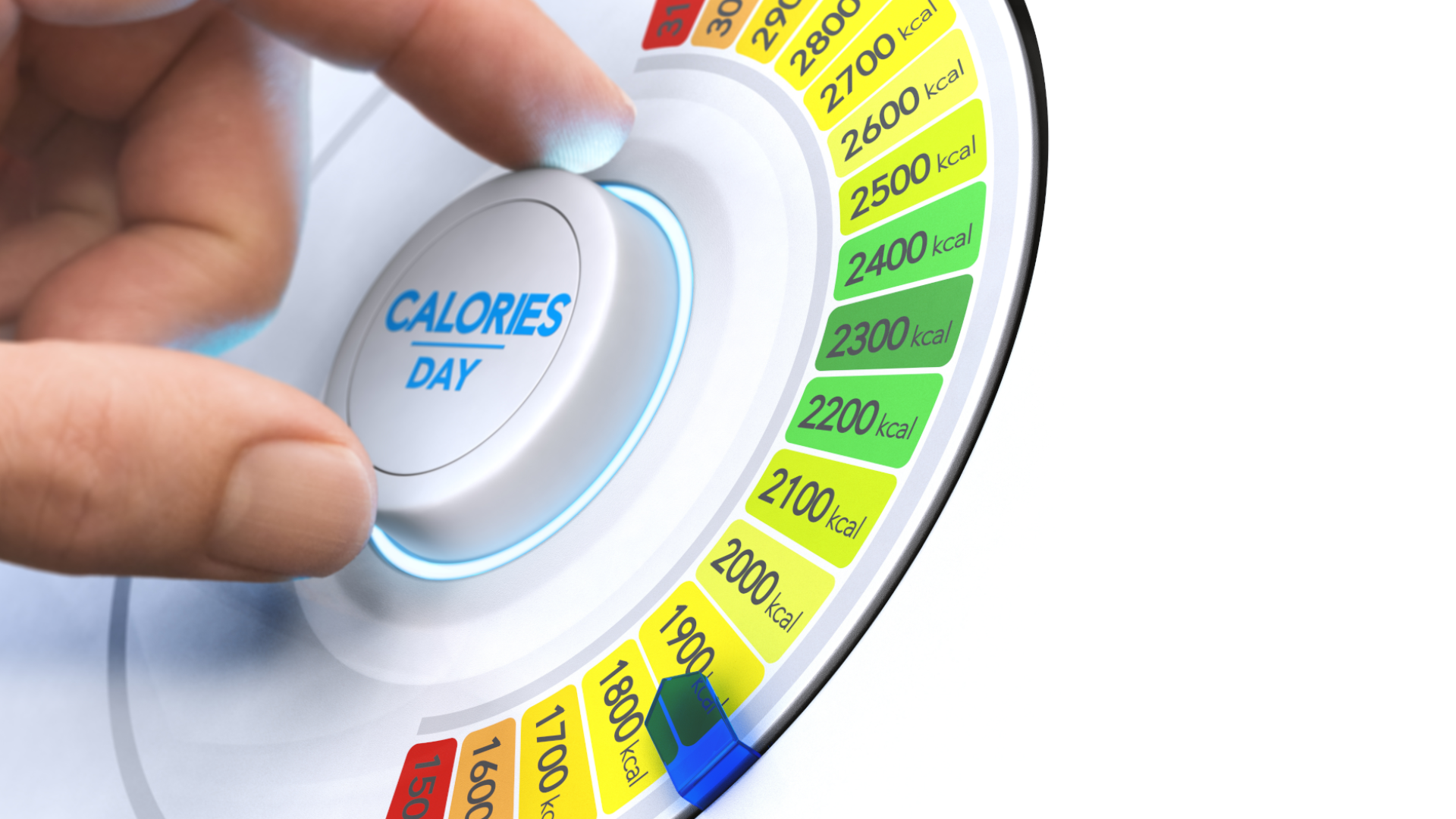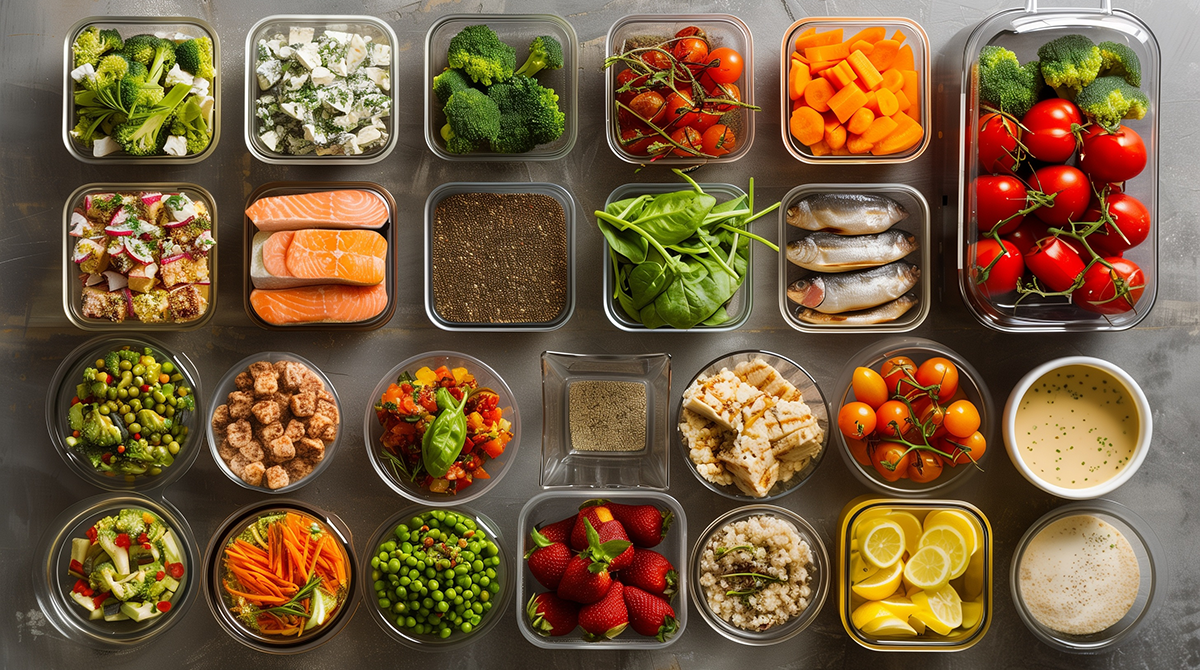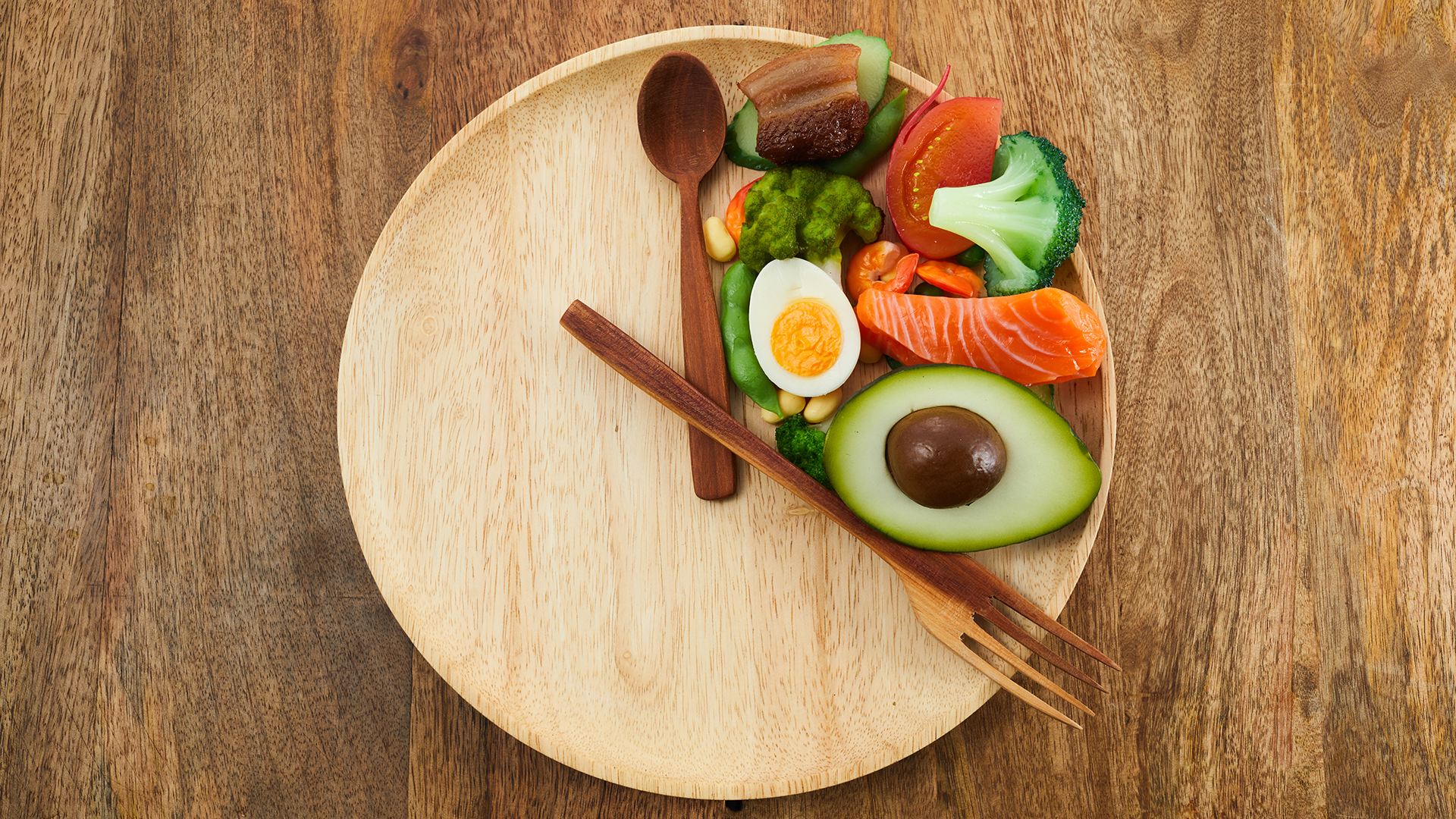Following a 1500 calorie diet can be an effective way to jump-start weight loss. Many people choose to follow this type of approach in order to control their food intake and reduce portion sizes. But does it really work? And what’s the best way to get started? If you’re thinking about trying it out for yourself, then this article covers everything you need to know.
- How many calories do you need
- Eat fewer calories to lose weight
- Foods to eat on a 1500 calorie diet
- Foods you should avoid
- Our 1500 calorie 7 days meal plan
- Tips for successful weight loss
Adopting a 1500 calorie diet plan isn’t always easy. There are plenty of energy-dense foods to tempt us every day. Deviating from the plan for just one meal can completely derail your chances of staying under the 1500 calorie target. So, we put together this guide to make things a little easier. It explains how to follow a 1500 calorie diet, including foods to eat, those to avoid, and tips for healthy, long-term weight loss.
How Many Calories Do You Need?
Let’s start with the burning question – is 1500 calories enough to keep you going? The truth is, everyone has different calorie needs. Your height, body composition, and activity levels can all influence the amount of energy you need to consume. The best way to start is by calculating how many calories you personally need. This is the amount of energy your body requires to function (not including exercise or other activities).
The simplest way to do this is to multiply your weight in kilograms by 25. It’s a pretty general figure since it doesn’t account for age, gender, or other factors, but it’ll give you a decent guide. You can also use online calorie calculators to work it out more accurately. Once you have your base figure, multiply it by a factor based on your activity levels…
- Multiply by 1.2 if you’re fairly sedentary and do little or no exercise
- Multiply by 1.4 if you’re lightly active and exercise 3 times or less per week
- Multiply by 1.55 if you’re moderately active and exercise most days
- Multiply by 1.7 if you’re very active and exercise hard every day
- Multiply by 1.9 if you’re super-active and do strenuous exercise twice daily
For example, if you weigh 80kg, then multiplying by 25 would equate to 2000 calories. If you were also fairly sedentary, then you’d multiply this 2000 by 1.2 which would result in 2400 calories as your total requirement. If you ate this many calories each day, it’d be enough to sustain your body as it is so you wouldn’t lose or gain weight.
Eat Fewer Calories To Lose Weight
If your goal is to lose weight then you’ll need to create a calorie deficit. This means eating fewer calories than you need or burning more off through exercise. Although we know the science isn’t as simple as ‘calories in versus calories out’, it’s a good basic rule of thumb.
Clinical guidelines recommend a deficit of 500-1000 calories in order to achieve a safe rate of weight loss (0.5-1kg per week). Depending on the amount of weight you want to lose, you can subtract 500 calories from your daily requirement in order to calculate your goal. You may find that this is more than the 1500 calorie diet guidelines if you’re tall or have a larger body mass. That’s ok as it’ll be more in line with the needs of your specific body type – you can always revisit this once you’ve lost some initial weight.

Foods To Eat On A 1500 Calorie Diet
Adopting a 1500 calorie diet plan may seem like a tough challenge. After all, research shows that the average American consumes more than 3600 calories each day! But this also explains why following a low-calorie diet can have dramatic weight loss benefits. Research shows that creating a calorie deficit is one of the most effective ways to lose weight. By halving the calories your body consumes, your system will quickly run out of fuel and switch to burning stored fat.
Related Article: 800 Calorie Diet Plan
So, what foods should you be eating? Here’s an overview of the best foods to fuel up on when trying to lose weight…
- Nutrient-rich veggies – broccoli, spinach, kale, tomatoes, peppers, etc.
- Fruit – apples, berries, pears, grapes, melon, bananas, etc.
- Starchy veg – potatoes, sweet potatoes, carrots, butternut squash, etc.
- Fish and seafood – salmon, shrimp, mackerel, sardines, etc.
- Eggs – including the yolk.
- Plant protein – tofu, tempeh, high-quality protein powder, etc.
- Meat and poultry – chicken, turkey, lean beef, etc.
- Legumes – lentils, kidney beans, chickpeas, etc.
- Whole grains – brown rice, oats, quinoa, etc.
- Dairy – yogurt, cheese, kefir, etc.
- Seeds and nuts – sunflower seeds, almonds, walnuts, natural nut butter, etc.
- Plant-based milk – almond milk, coconut milk, cashew milk, etc.
- Healthy fats – avocado, coconut oil, olive oil, etc.
- Low-calorie drinks – water, green tea, coffee, etc.
It’s also worth remembering that a 1500 calorie diet for men may look quite different from one for women. Men tend to have more muscle which means they have a greater need for protein. Women have higher iron requirements so will need to consume a greater amount of foods rich in this mineral.

Foods You Should Avoid
If you want to stick to the 1500 calorie diet plan, then it’s important to be smart with your energy intake. Avoid foods that are energy-dense but not very filling, like cakes and biscuits. Drinking calories is another way that people accidentally over-consume without realizing it. Here are some key foods to avoid if you want to meet the guidelines…
- Fast food and takeaways – pizza, fries, hot dogs, etc.
- Refined carbohydrates – sugary cereals, white bread, pasta, etc.
- Highly processed foods – bacon, cereal bars, doughnuts, etc.
- Fried foods – onion rings, potato chips, chicken nuggets, etc.
- Low-fat foods – diet yogurts, ice-creams, chips, etc.
- Sugar-laden drinks – soda, energy drinks, fruit juice, etc.
Our 1500 Calorie 7-Day Meal Plan
Following a 1500 calorie diet plan for 7 days may seem like a big ask but with some planning, it’s actually very achievable. The key is to organize your meals ahead of time so you always have the right ingredients available. Here is our 1500 calorie diet meal plan for a week…
Monday
Breakfast – Banana & PB Toast With Eggs
2 fried eggs, 1 slice of wholegrain toast, 2 tablespoons of natural peanut butter, 1/2 sliced banana
Lunch – Grilled Chicken Salad
4 ounces of grilled chicken, 2 cups of spinach, 1/2 cup of shredded carrots, 1/2 cup of chickpeas, 1 ounce of goat’s cheese, vinaigrette dressing
Dinner – Bean Burger
1 cup of black beans, onion, garlic, 1 egg, 1 tablespoon of breadcrumbs, 1 ounce of feta cheese, mixed greens salad
Tuesday
Breakfast – Avocado & Egg on Toast
2 eggs, 1 slice of wholegrain toast, 1/2 avocado (mashed)
Lunch – Sushi Rolls
2 brown rice sushi rolls, 2 pieces of salmon sashimi, salad
Dinner – Yellow Squash Pasta with Caramelized Lemon (recipe)
Wednesday
Breakfast – Classic Oatmeal
1 cup of oatmeal, 1 cup of almond milk, 1/2 teaspoon of cinnamon, 1 sliced apple
Lunch – One of our Healthy Grab-and-Go Lunch Ideas
Dinner – Baked Cod with Grains and Broccoli
5 ounces of baked cod, 3/4 cup of quinoa, 2 cups of roasted broccoli
Thursday
Breakfast – Berry Breakfast Smoothie
1 cup of frozen berries, 1 scoop of plant-based protein powder, 1 cup of almond milk, 1 tablespoon of almond butter
Lunch – Vegetable and Hummus Wrap
1 whole-grain wrap, 2 tablespoons of hummus, 1 sliced tomato, 1/2 avocado, a handful of salad leaves
Dinner – Moroccan Stuffed Peppers (recipe)
Friday
Breakfast – Nutty Yogurt Bowl
1 cup of full-fat plain yogurt, 1 cup of strawberries, 2 tablespoons of chopped nuts, 2 tablespoons of chia seeds
Lunch – Tuna Salad
1 can of tuna, 1 stick of celery (chopped), 1 tablespoon of mayonnaise, 1/4 sliced avocado, 2 cups of mixed greens, 1/2 apple (sliced)
Dinner – Salmon and Vegetables
4 ounces of salmon, 1 sweet potato, 1 cup of roasted Brussel sprouts
Saturday
Breakfast – Spinach Omelette
2 eggs, 1 cup of spinach, 1 ounce of grated cheddar cheese
Lunch – Ravioli & Vegetable Soup (recipe)
Dinner – Mexican Shrimp Fajitas
2 small tortillas, 4 ounces of grilled shrimp, 2 cups of sautéed peppers and onions, 1 tablespoon of full-fat sour cream, 1 ounce of grated cheese
Sunday
Breakfast – Fruity Yogurt Parfait (recipe)
Lunch – Kale Salad with Grilled Chicken
4 ounces of grilled chicken, 2 cups of kale, 1/2 cup of lentils, 1/2 cup of shredded carrots, 1 sliced tomato, balsamic vinaigrette
Dinner – Pasta with Pesto and Beans
1 cup of whole-wheat pasta, 1/4 cup of cannellini beans, 1 tablespoon of pesto, 1 cup of cherry tomatoes, 1 cup of spinach
Tips for Successful Weight Loss
Following a 1500 calorie diet alone is unlikely to keep the weight off long-term. You also need to increase physical activity levels through regular exercise. Find an activity that you genuinely enjoy like dancing, hiking, or surfing, then do it consistently. This will help you to burn calories, give your metabolism a boost, and build lean muscle too.
It’s also important to get enough good-quality sleep. Being sleep-deprived can increase stress-related hormones which make you feel hungry and promote fat storage. Aim for 7-9 hours each night and avoid screens in the lead up to bedtime. This will help your body to rest and recover so that you look and feel your best the next day.
Another key to successfully losing weight is to keep adapting your routine. As you lose weight, your body will require fewer calories than it did before. To maintain the weight loss and avoid hitting a plateau, it’s helpful to re-evaluate your calorie needs every 4-6 weeks.
You can also take the same approach to your exercise habits too. If you’re finding it hard to stick with an activity, then choose another one that you’re more likely to enjoy. If you’re struggling to resist temptation or feeling hungry, then take an appetite suppressant to help curb it. This will help keep you on track towards achieving your weight loss goals.
Related: 1200 Calorie Diet Plan
Summary: 1500 Calorie Diet
Following a 1500 calorie diet plan can help you to lose weight by reducing energy intake. Creating a calorie deficit has been proven to support weight loss by numerous research studies. When following this approach, it’s important to calculate your own calorie requirements and then consume less than you need.
Eating whole foods like vegetables, fruits, and lean protein will help to keep you full while consuming minimal calories. Following a diet plan can ensure you to stick with the program and avoid unwanted temptations.
Related: 800 Calorie Diet Plan




